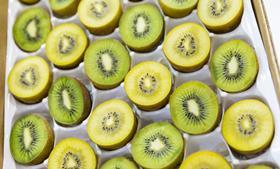
Spain imported more fruit and vegetables in the opening eight months of 2017 than it did during the same period of the previous year, according to new data from the country's Customs Directorate.
Fepex, which processed the information, said that the rise in reliance on imports demonstrated a need to implement measures to 'improve competitiveness in certain crops and sectors'.
Overall fresh produce imports climbed 3 per cent in volume and 8 per cent in value for the January-August period, up to 1.9m tonnes and 1.7bn respectively.
Fruit, which represented 58 per cent of Spain's imports in the first eight months of the year, came to to 1.1m tonnes (up 1 per cent year-on-year), with a value of €1.17bn euros (+7 per cent).
Some of the leading imports were kiwifruit at 134,521 tonnes (+35 per cent), pineapples at 103,957 tonnes (+10 per cent), watermelons with 75,888 tonnes (+38 per cent) and avocados at 68,102 tonnes (+2 per cent) – although bananas remain the biggest Spanish fruit import at 196,674 tonnes, up 5 per cent.
By contrast, apple and orange imports took fall during the eight-month period, down 15 per cent and 13 per cent respectively.
Imports of vegetables grew 6 per cent in volume, totaling 879,736 tonnes, and 11 per cent in value, coming in at €530.6m.
Potato imports were particularly notable, up 10 per cent year-on-year to 515,895 tonnes and representing 60 per cent of all vegegtable imports, while value jumped 18 per cent to €167.7m.
Imports of tomatoes also rose, with a 17 per cent increase in volume, and an 11.5 per cent jump in value to €70.3m.



